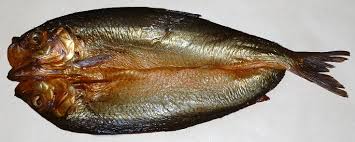We talk about the rivers of course. Dave has a stretch of the Test and I have a beat on the Wye. Salmon are always discussed. Well, I say ‘discussed’ but in reality Dave talks and I listen. He is probably the only man in the world to have written a book about salmon without referring once to fly-fishing for them. He angles and writes from a coarse angler’s perspective and has more bank-craft and big fish catches to his name, of all species, than any other angler I know.
I explained that I managed to catch three salmon from my water last year, one on a lure and two on the Spey rod. With so few salmon in the upper river in recent years this was quite some achievement for me – and learning to cast with this tackle is a skill I am still learning. It’s hard enough with carbon fibre and modern lines; my respect has gone up a few notches for the old timers with their string and greenheart rods.
“Fly fishing? Pah! They’re hard enough to catch as it is without making it even harder. I want to catch the bloody things not play silly games with them!”
Did I mention Dave is also a little opinionated at times?
“Of course, you can’t use bait now on your river – but worms and prawns were always the best bet if you actually wanted to catch a fish” leaving unsaid ‘rather than poncing about in the river waving a stick in the air’ – which is what he obviously meant.
“Oh yes, prawns” I said. “Tell me Dave, did you ever use them raw or did you always use cooked ones?”
He waited a beat before answering. “Cooked. Look at it this way. You come home and put the key in the door. If the wife has the food out on the work surface but hasn’t started cooking yet, you haven’t got a clue she’s even been in the kitchen. But come home thirty minutes later… As soon as you open the door you know there’s roast pork in the oven, or bacon frying or whatever. Cooking releases all the indicators into the air and your senses can pick it up from afar. It’s the same in the river with salmon and cooked prawns. Cast out a raw prawn and they probably don’t even know its there unless you put it in front of their noses. Use a cooked one and they’ll come from the other end of the pool to find it.”
He continued…
“But you can still use lures can’t you? If there’s not too many snags… You want a floating Devon minnow on the trace with a lead on a 2ft paternoster. Black and gold. I used to make my own. Just paint them black and kipper skin the rest. And another thing…”
A conversation with this man always goes at breakneck speed and I sometimes have to put the brakes on. “Hold on, back up a bit. What did you say then? After painting them?
I pictured him looking momentarily puzzled on the other end of the phone, sitting at the piano beneath the gigantic cased salmon on the wall.
“Oh. Kipper skin? You know about that don’t you? I caught lots of big salmon on kipper-skinned minnows, including my biggest one. You skin a kipper and eat it. Then wrap the skin around a devon minnow so some of the black painted body still shows. Use some sea fishing bait elastic to hold it on. It spins with the most beautiful black and gold action you can imagine – and they can sense it from yards away. Absolutely deadly…”

Eventually the conversation ended and the call disconnected, but my brain kept ticking away over what I had just learned. I’d heard similar things before of course, even said similar things, but it hadn’t really sunk in until Dave gave it his slant. I put kippers on the shopping list.
If Dave was right, that salmon can detect a kipper skin from a distance, perhaps it would also be true for pike. Or even barbel or chub? Or carp! That flavour can transmit through water is well known but if a cooked /smoked fish bait flavour is much stronger than uncooked fish in the air, why shouldn’t it work the exact same way in water? I have never believed in the smell of bait being in any way important. In an aquatic environment there is no air to transmit smells so how can scent have any importance? Taste and flavour seem to be, therefore, the important things to me and these need fluid to transmit them selves. But a cooked or smoked bait could be ten times more effective than a standard dead-bait if Dave’s theories are correct. But right now its Christmas, the river is in flood and I’ll have to wait to test the theory.
Searching Google revealed that a few sea anglers had tried kippers with good effect, mainly for flounder and eels, and another site reported pike on them. It had to be worth a try! And smoked mackerel or herring had to be worth a try too, nothing much on the net about them either, though a Wiki Answers search rated the latter highly: “A virtually untested bait, one with a powerful flavour and a high oil content used as an extra vehicle to help disperse it”
Hmmm…










